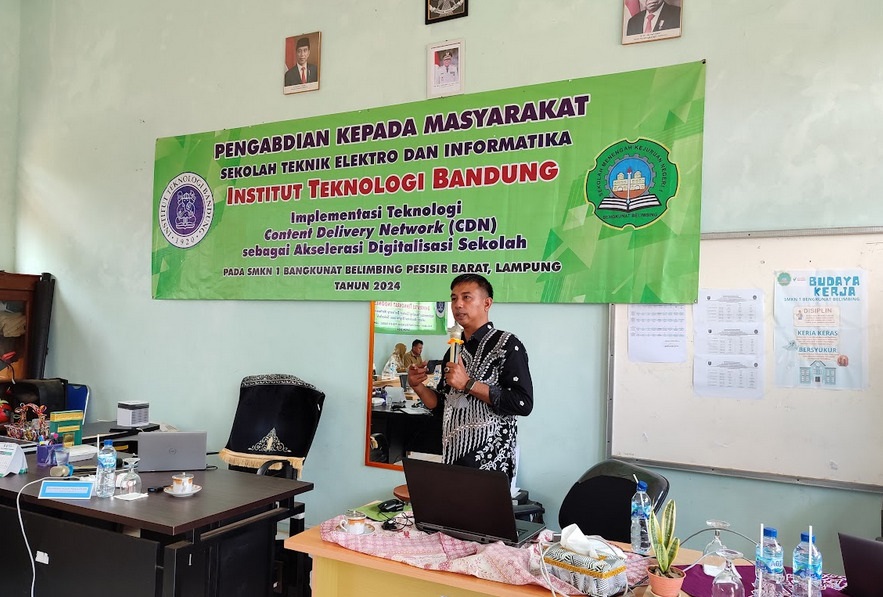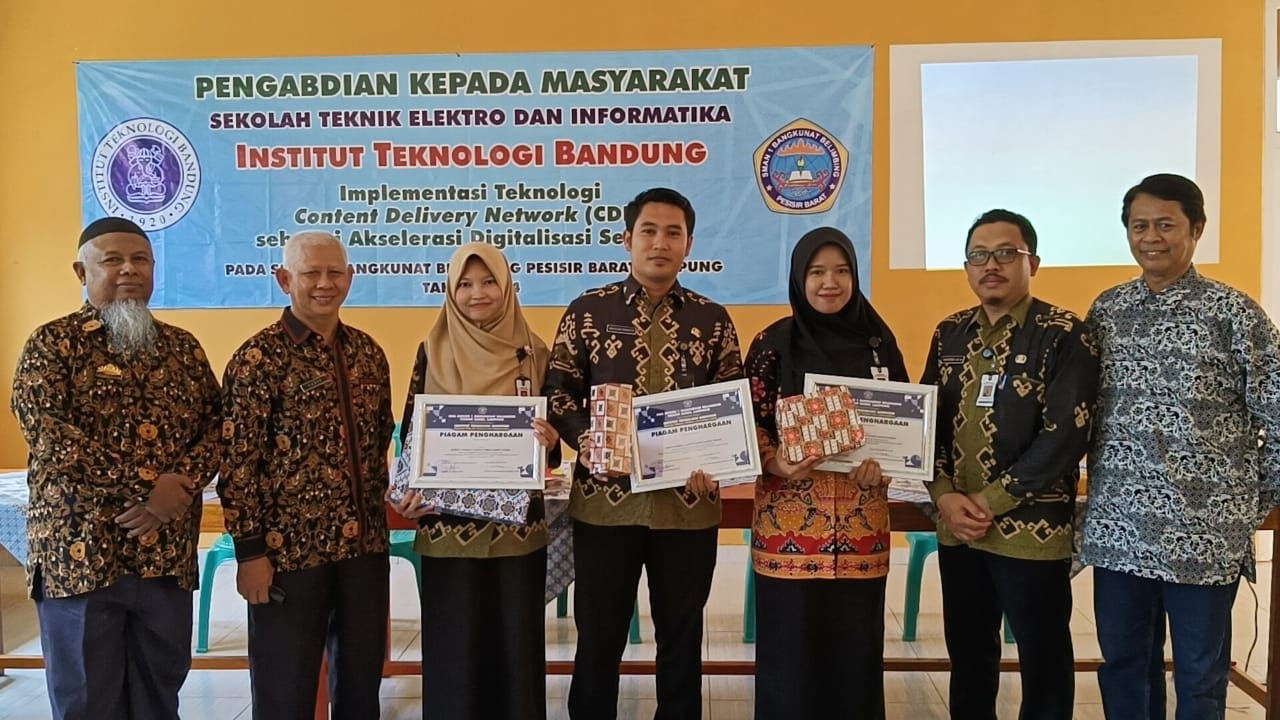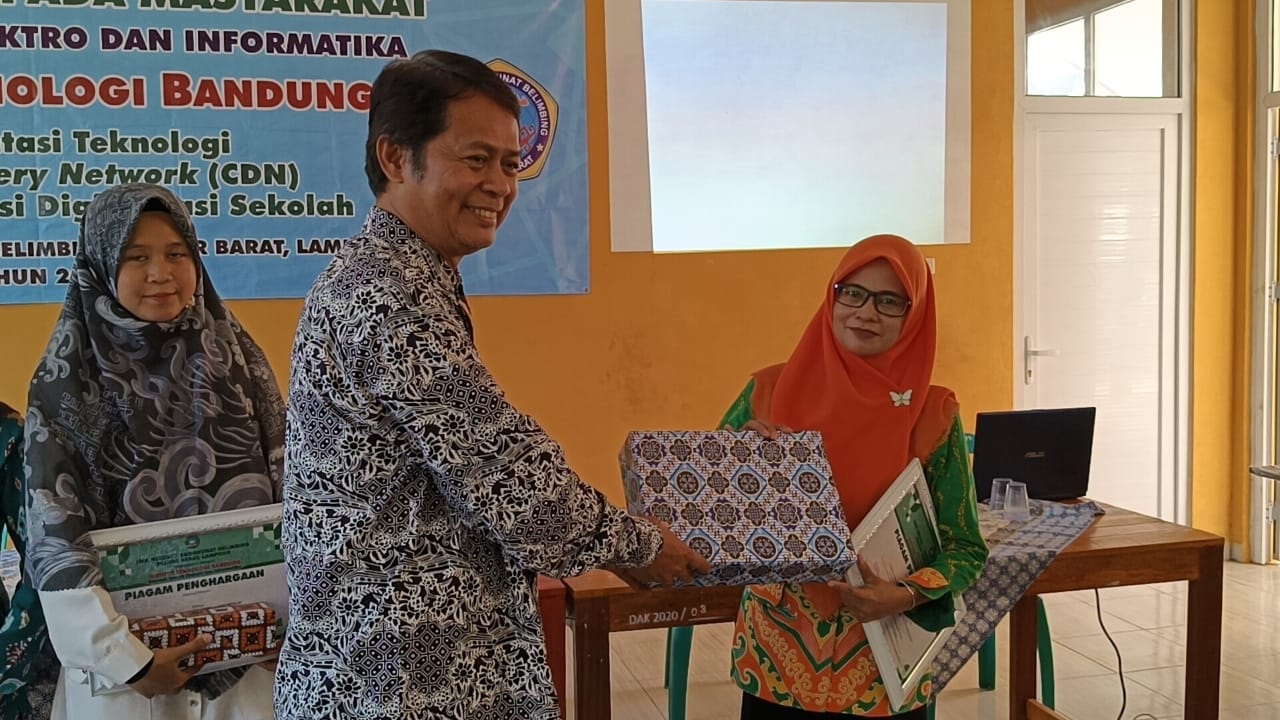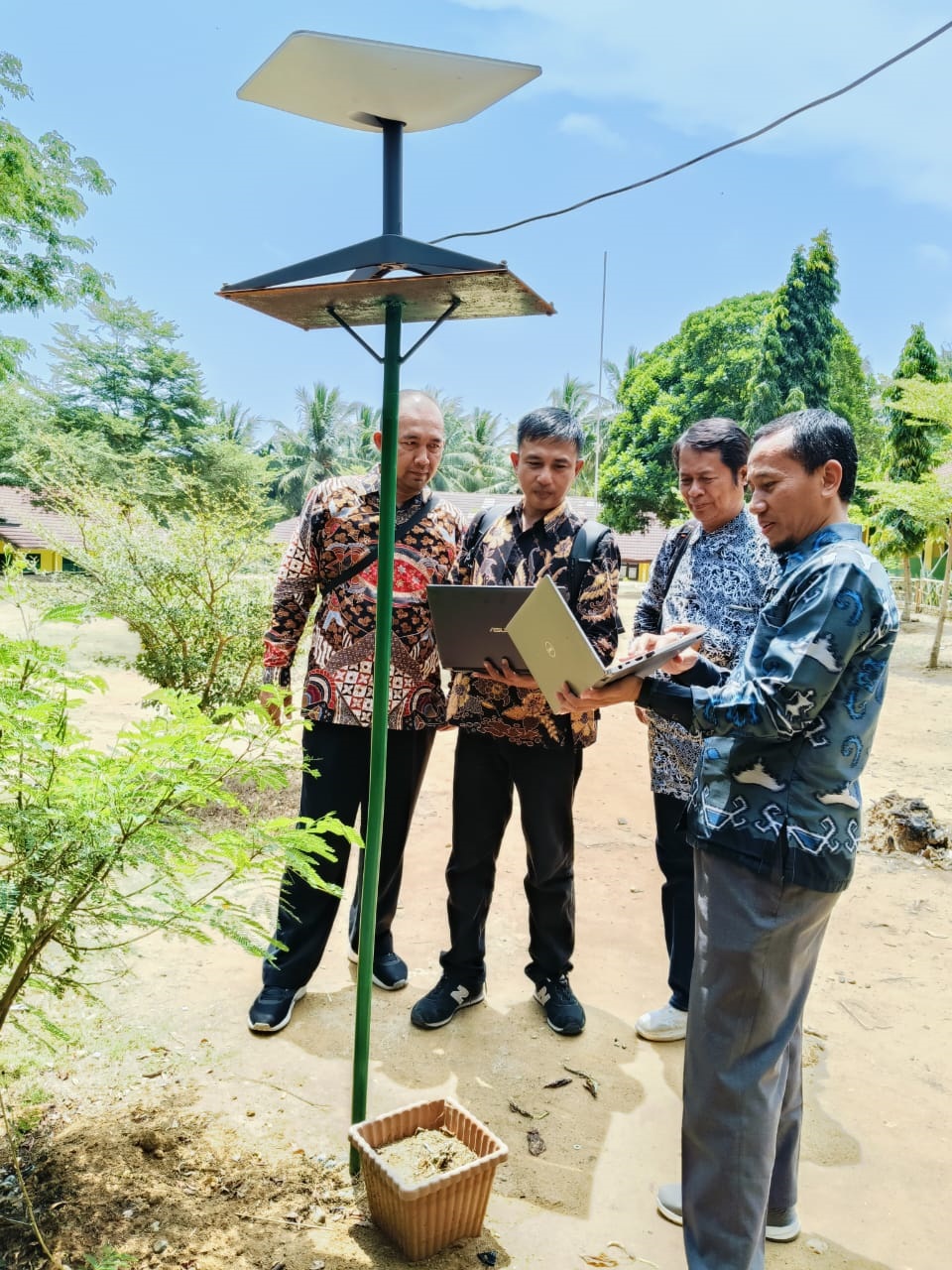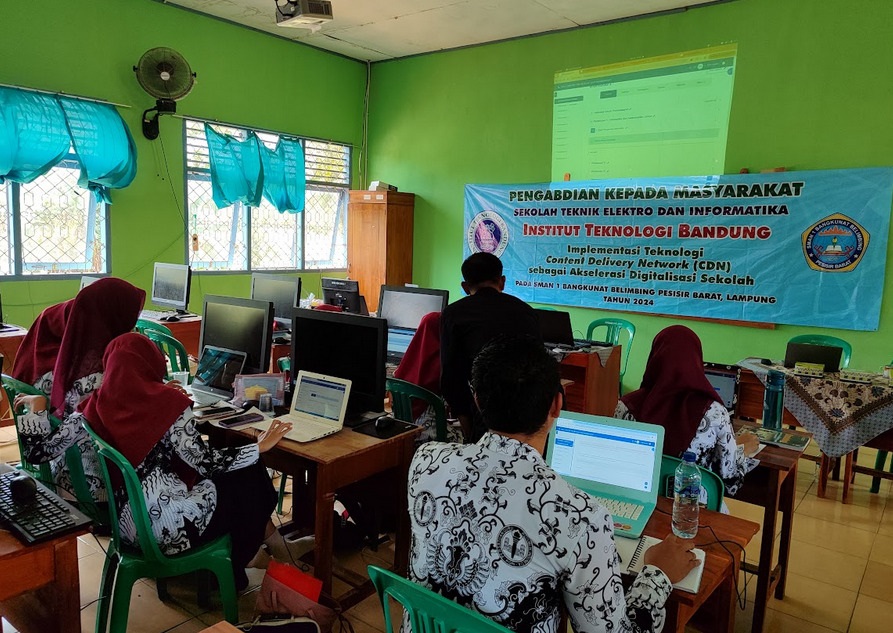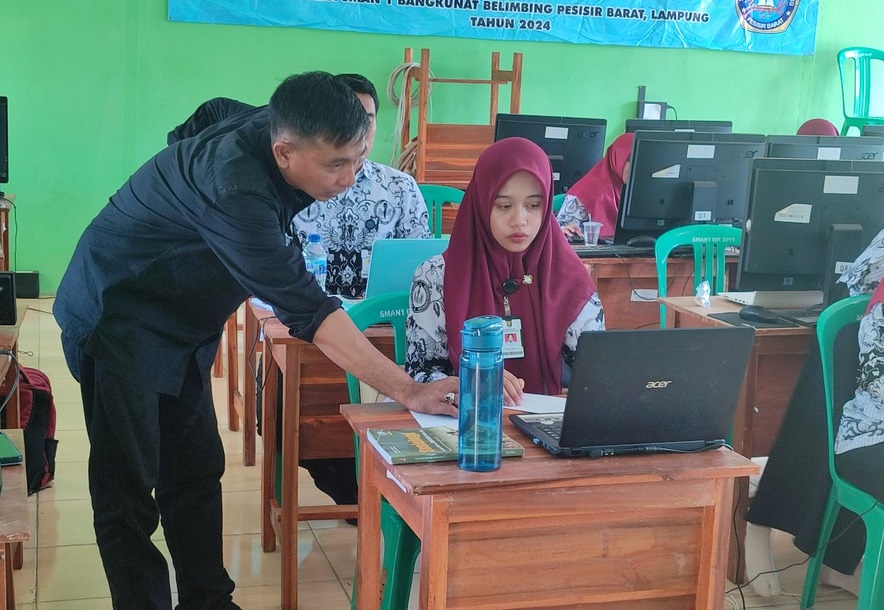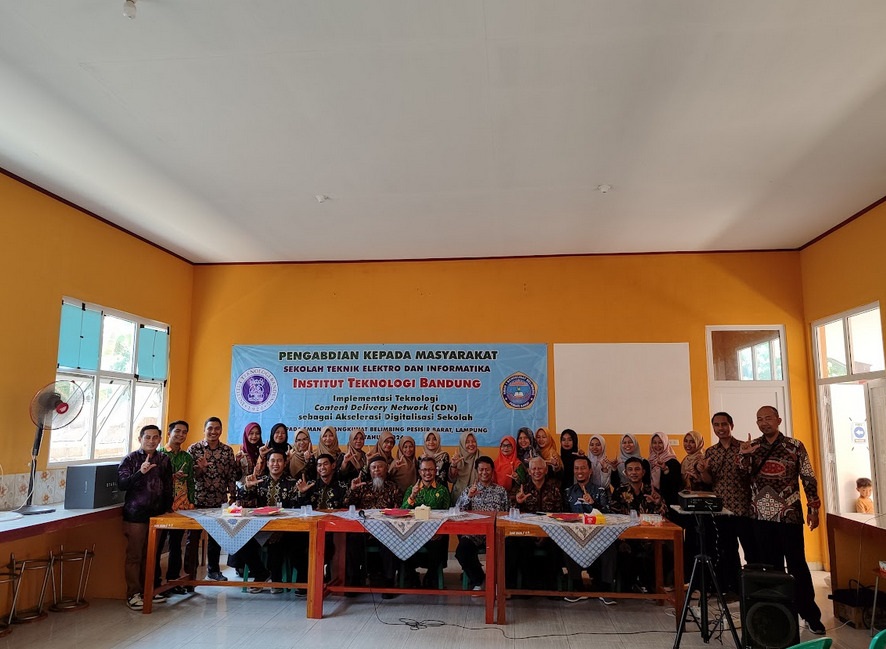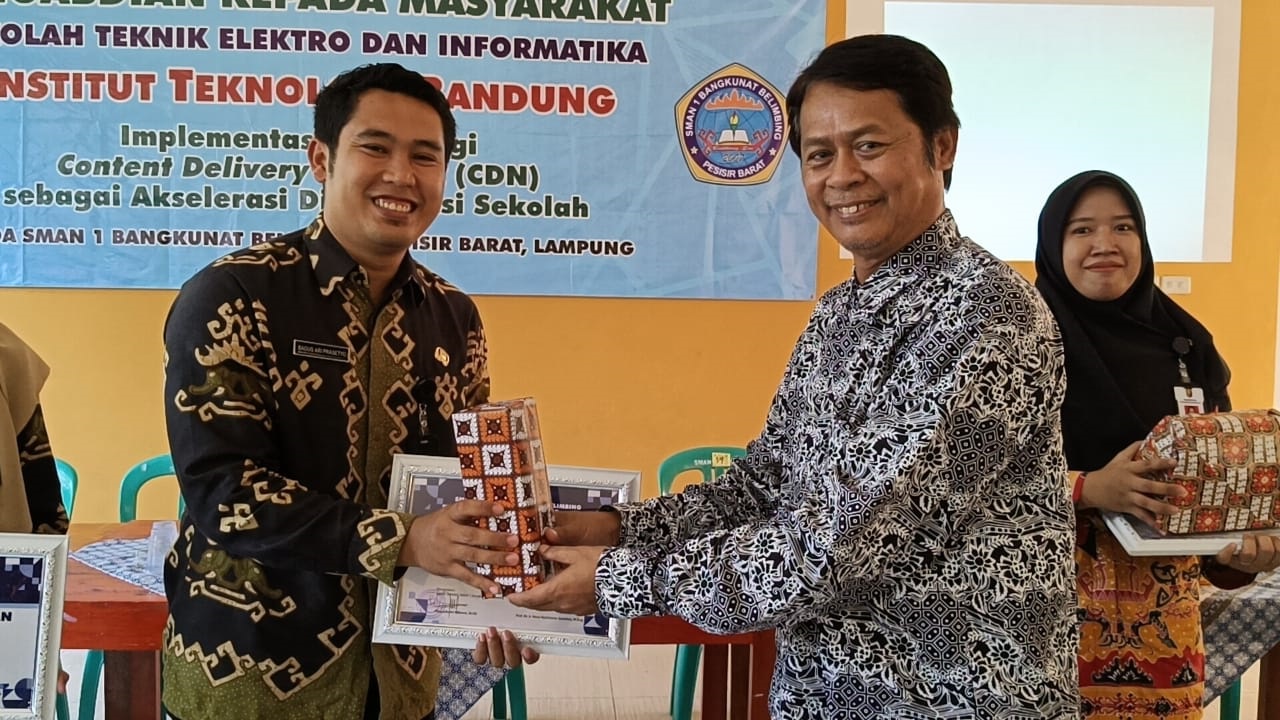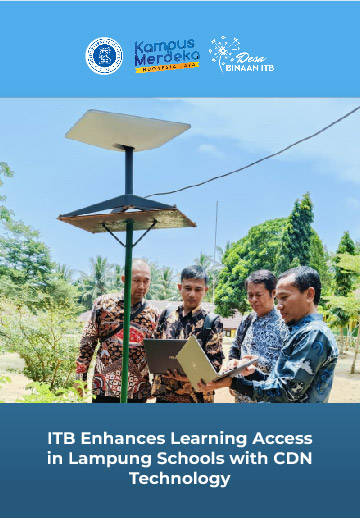

On October 10, 2024, the Community Service Team from the Bandung Institute of Technology (ITB) introduced Content Delivery Network (CDN) technology at SMAN 1 and SMKN 1 Bengkunat Belimbing in Lampung. This initiative aims to improve access and efficiency in using digital learning content in areas facing network infrastructure challenges. CDN technology, a geographically distributed server network, allows faster content distribution by storing content copies on servers closer to the user.
According to Prof. Dr. Ir. Nana Rachmana Syambas, M.Eng., who led the activity, “The school’s servers are used to provide content servers, which are then integrated into the local school network,” he explained. This technology enables faster access by directing requests to the nearest edge server, reducing the main server load and saving bandwidth.
A survey at both schools revealed that many students struggled to access learning materials due to limited data and bandwidth. The issue was further complicated by unstable internet access, even though the BTS program had reached the area. ITB thus installed Starlink, a satellite technology expected to provide stable internet connectivity.
The schools were actively involved in the CDN training and socialization sessions. The training included understanding CDN operations, optimizing the school network, and server configuration techniques for content distribution. This active participation enabled the schools to independently utilize this technology to support digital learning.
Besides CDN infrastructure, teachers were trained in multimedia content creation, allowing them to develop engaging and interactive materials. In a bid to enhance personalized learning, the team also offered basic artificial intelligence (AI) training to the teachers.
Program evaluation was conducted through questionnaires, interviews, and direct observations. The results showed that implementing CDN and Starlink positively impacted content accessibility. Feedback from the schools indicated that this technology effectively addressed internet access issues and supported more efficient learning processes.
Prof. Nana expressed hope that this initiative could serve as a long-term solution for schools facing internet access limitations. “Utilizing CDN technology can enhance teachers' capabilities to tackle technological challenges and optimize resource usage,” he concluded.
Berita terkait:
bandungmu.com: ITB Perkenalkan Teknologi CDN di Sekolah Lampung Untuk Tingkatkan Akses Materi Pembelajaran
